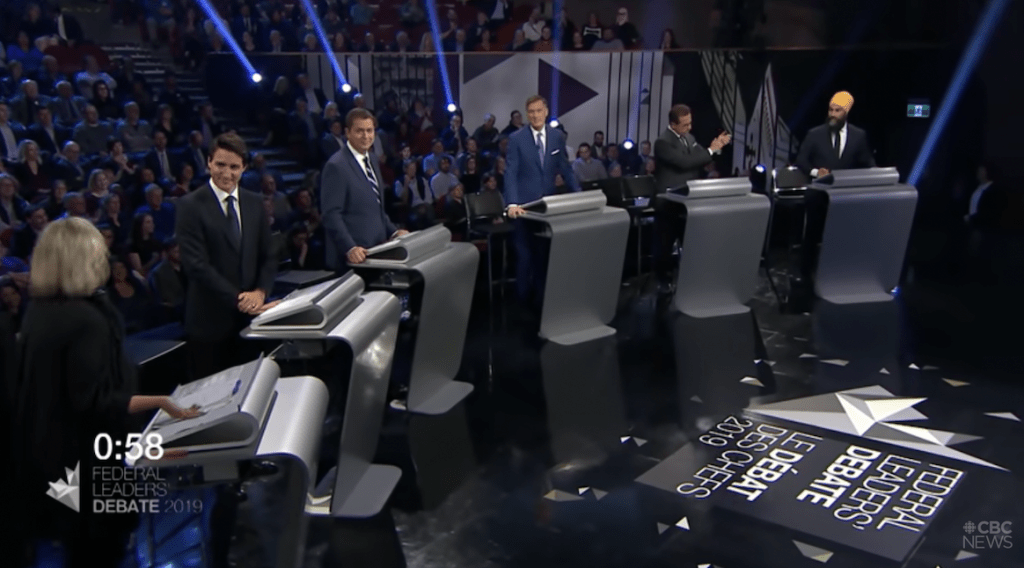Debates Matter

Don Newman
August 18, 2021
The federal party leaders are now traveling the country, unveiling their election platforms and announcing or re-announcing programs they say they will implement if they form a government. Each will hope to score points for ideas, points for appearing genuine and style points for looking “prime ministerial.”
All of this is important and it will take up the next three weeks of the campaign. But what happens at the beginning of the second week of September will be key. Just twelve days before election day and four days before the advance polls open, the five party leaders will debate at the Canadian Museum of History in Gatineau. On September 8, from 8 to 10 PM, they will debate in French. The next evening, from 9 to 11, they will debate in English.
Debates have varying impacts on campaigns. The increase in the number of parties and leaders that must be accommodated has made the possibility for dramatic exchanges less likely. So has the expanding number of questioners as more networks and news organizations sponsor and carry the debates.
The dramatic face-offs between Conservative Brian Mulroney and Liberal John Turner, first in 1984 and again in 1988, have not since been replicated. That’s because the two men were debating each other head to head. The one other person in those debates, then-NDP leader Ed Broadbent, was not on stage during the most dramatic moments.
Subsequent debates have tried to replicate the knock-out, “You had an option, sir” moment from 1984 that turned the tide for Mulroney, but with little success. Two leaders go head to head for a couple of minutes, with the other leaders still on stage observing. Then after the initial go- round, the other leaders chime in. It doesn’t make for much enlightenment or even good television.
Again, in this election, five leaders will be on stage for both debates: Liberal Justin Trudeau, Conservative Erin O’Toole, Bloc Québécois Leader Yves- François Blanchet, NDP Leader Jagmeet Singh and Green Party Leader Annamie Paul. Peoples Party of Canada leader Maxime Bernier will likely not be taking part. He was a late addition in 2019, but this time the Leaders Debates Commission has firmer guidelines, and Bernier and his party so far don’t meet any of them.
This time, to qualify to take part in the debates a party must have at least one of the following; A member of the last Parliament elected as a party candidate; at least four per cent of the popular vote in 2019; or be polling at least four per cent a week after this election was called.
But even if chances or dramatic confrontations are limited, the debates are still of vital importance to the leaders. A misspoken word, a glaring factual error, failing to respond when adequately challenged, all can be fatal in a close campaign. That is why all the leaders will be preparing in advance to put their best foot forward.
Every leader has a chance to improve their position with the electorate. But in reality, this is a debate between just two people. In the 2019 debate then-Green Party Leader Elizabeth May said what everyone knew, but was not acknowledging, that only the Liberal leader or the Conservative leader was going to be the election winner. It came in a one-on-one segment between May and NDP Leader Jagmeet Singh, who was having a good performance.
“Come on, Jagmeet,” she said, “everyone knows there are only two people on this stage with a chance to be prime minister.”
That will be the case again on September 8th and 9th. The debates will trigger a run for the roses over the final two weeks of the campaign. Until then, what the party leaders do is important. But in reality, it’s just the prologue.
Contributing writer and columnist Don Newman, a lifetime member of the Parliamentary Press Gallery, is author of the bestselling memoir, Welcome to the Broadcast. He is Executive Vice President of Rubicon Strategies in Ottawa.
